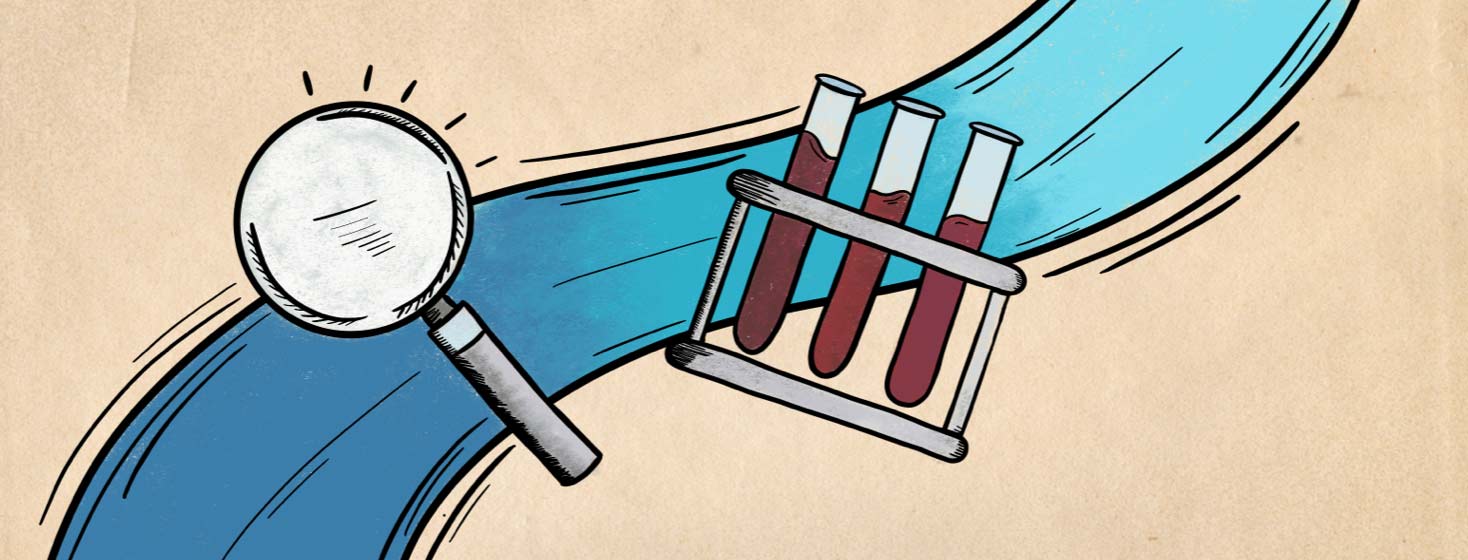Genetic Testing for Bipolar Medicine
Bipolar disorder is a mental health condition that causes dramatic swings in a person's mood. This is different from the minor mood swings that most people have. Bipolar disorder affects about 5.7 million adults living in the United States.1,2
Medical experts do not know the exact cause of bipolar disorder. However, they believe factors, including genes, environment, and brain chemicals may play a role.3
Treating bipolar disorder
Treatment can help people with bipolar disorder manage their symptoms. Treatment usually includes a combination of medicines, psychotherapy, and self-management strategies. Medicines doctors may recommend for bipolar disorder include:1
- Antidepressants
- Mood stabilizers
- Antipsychotics
Bipolar medication and genetics
While medicines are a key part of a typical treatment plan, they can cause side effects that make living with the condition more challenging. As a result, doctors treating people with bipolar disorder may try out different medicines over time. They may also adjust treatment plans to get the most tolerable combination.1,4
Fortunately, scientists have found a way to use a person's genetics to pick the best medicine for them. Genetic testing helps doctors to find the most suitable medicine using a person's genetic makeup. This can reduce the trial and error often required to start treating the condition effectively.1,4
This or That
Have you found the right medication for you yet?
How can genetic testing help?
Genetic testing examines how genes affect the body's response to different medicines. Genes are 1 factor that determines how a person’s body reacts to drugs. Genetic testing is a key aspect of precision medicine, which tailors treatments to each person's needs.4
For bipolar disorder medicine, genetic testing can show the following:5,6
- Metabolism rate – This refers to how fast or slow your body digests, absorbs, and removes medicines. This rate can vary from one person to another due to genetic differences.
- Side effect risk – Genetic tests can detect the risk of drug side effects. Such information can help your doctor find safer alternatives to certain medicines.
- Drug efficacy – The tests can reveal how well your body responds to a particular medicine. It can also provide information about the right drug dosage for you.
- Drug-enzyme interaction – The test can detect how an enzyme in your body interacts with the drug. Enzymes are proteins involved in chemical reactions in the body.
- Personalized treatment – With genetic testing, your doctor can tailor your treatment plan using your genetic profile. This saves time and lowers the risk of unsuccessful treatment.
Your doctor will determine whether you need genetic testing. They may not find genetic testing necessary if your medicines are working to improve your symptoms. But if your medicines are not effective or cause side effects, they may order genetic testing.2
How does genetic testing for bipolar disorder work?
The first step is to get a sample of your DNA by taking a cheek swab. A healthcare professional will send this sample to a laboratory for analysis. Your doctor will then review your results while considering other factors as well. These factors may include your age, gender, other medicines, or other health conditions.2
After discussing your test results with you, your doctor will work with you to develop a personal treatment plan. This will involve choosing the right medicine based on your genetic profile.2
Check with your insurance provider to see if your plan covers genetic testing. Some private health insurance may cover the costs if a doctor recommends genetic testing.2
Talk with your doctor and potential DNA tests
Surveys show that doctors think genetic testing is vital for choosing the right drug therapy for bipolar disorder. If you want to discuss genetic testing with your doctor, the following tips can help:2,7
- Bring a supportive friend or family member.
- Tell the truth about how you feel about your treatment.
- Share what you think is working and what the doctor can improve.
- Tell them about all your medicines, supplements, and medical history.
